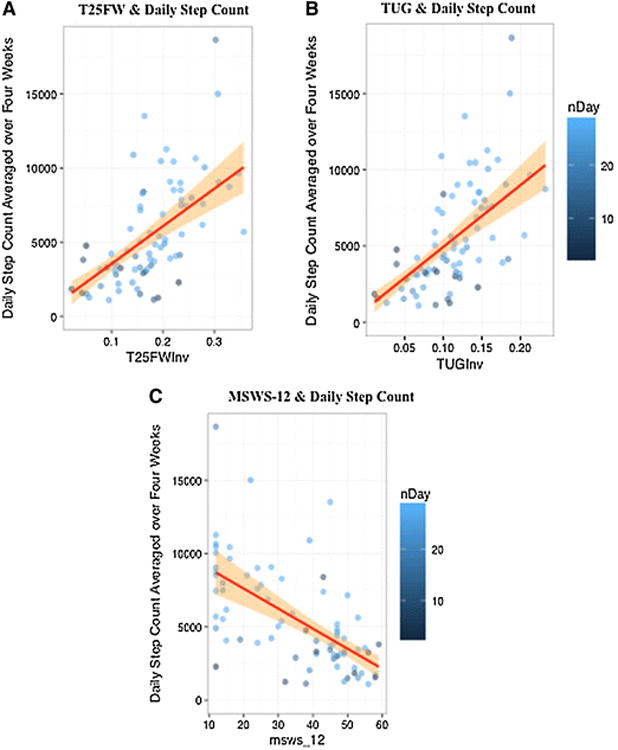Fig 4.

Greater average daily step count (measured using the Fitbit Flex) is correlated with better performance-based measures of ambulatory function and lower patient-reported impact of MS on ambulatory function. a: Average steps per day are inversely correlated to the time taken to complete the T25FW: faster walking speeds are associated with a greater average daily step count. (q = 0.65, p < 0.001). b: Likewise, average steps per day are positively associated with higher mobility and balance (faster TUG time scores). (q = -0.64, p < 0.001). c The 12-item MS walking scale (MSWS-12) is inversely correlated to the ambulatory activity (average number of steps per day) recorded by the Fitbit Flex. Higher MSWS-12 scores indicate greater impact of MS on a person's walking ability, and correspond to a lower average daily step count. (q = -0.63, p <0.001). The orange shading corresponds to the slope estimate, which is constrained to be linear (red line). a, b Inverse scores were taken to normalize the data and allow for linear regressions. nDay the number of valid days of Fitbit Flex step count data, T25FWInv inverse (1/T25FW) score of the T25FW, TUGInv inverse (1/TUG) score of the TUG
